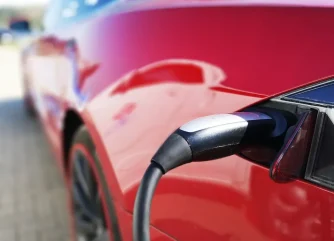
The UK Government needs to align its policies around electric company cars with next month’s Budget, according to Fleetcheck.
The software firm said it would be premature for the Chancellor to assume that, because of strong current EV adoption rates in the sector, this was an area where revenue could be reclaimed.
Fleetcheck managing director Peter Golding said a recent reduction in the Advisory Electricity Rate (AER) was a concern, although he acknowledged that this was formula-based.
He said: “There’s always been a strong argument that AER rates are too low and reducing them further in this way sends out a potentially discouraging message to anyone thinking of choosing an electric company car. Our hope is that it is not a sign of things to come.”
Golding argued that the government should not use the Budget to announce rapid future increases in electric company car BIK rates.
He said: “We currently have BIK tables though to 2027/28 and it would be fair to describe the rises they detail as careful. Rates are clearly being kept low to encourage further electric car adoption over time.
“What we don’t want to see is a sudden jump in future BIK because that would affect company car choices being made today, given typical replacement cycles.
“This could especially discourage electric car adoption at a point in time when there is already an underlying trend developing towards plug-in hybrids among some drivers.”
Golding said it would be a mistake for the government to look at the progress made in fleet car electrification to date and assume that the trend would continue at the same rate.
He said: “Drivers who haven’t chosen an electric car so far are those who, for example, have no drive on which to install a charger and therefore no easy access to low-cost charging.
“In order to bring those drivers on board, the Government needs to not just keep BIK low, but also ensure that AER rates match electricity prices effectively, and that the installation of on-street charging is properly funded.
“Everything needs to be aligned and the signals in favour of EV adoption need to be clear in order for the market to continue to respond positively. We very much hope to see this happen on October 30.”





